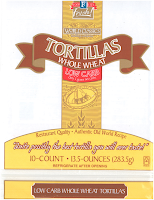
A lettuce recall has been announced in 23 states and the District of Columbia apparently due to an outbreak of E. coli that has sickened at least 19 people. Three of them have life-threatening symptoms.
Local health departments in Ohio, Michigan, and NY noted that it is college students at the University of Michigan in Ann Arbor, Ohio State in Columbus and Daemen College in Amherst, N.Y., that are among those affected.
On Thursday, the FDA noted that 12 people were in hospital and the federal Centers for Disease Control and Prevention believed that another 10 cases were suspected to be linked to the outbreak.
In a press release, the FDA observed:
Multiple lines of evidence have implicated shredded romaine lettuce from one processing facility.
The lettuce came from Freshway Foods of Sidney, Ohio. They announced that they had initiated a voluntary recall of
romaine lettuce sold under the
Freshway and
Imperial Sysco brands as they were believed to have a link to this E. coli outbreak. Freshway Foods said the lettuce was sold to wholesalers, food service outlets, in-store salad bars and delis.
Further, the FDA investigation is focusing on on lettuce being grown in Arizona as a possible source of this outbreak. E. coli infection can cause mild diarrhea or more severe complications, including kidney damage. The three patients with life-threatening symptoms were diagnosed with hemolytic uremic syndrome, which can cause bleeding in the brain or kidneys. The most common strain of E. coli found in U.S. patients is E. coli O157. The CDC said the strain linked to the lettuce, E. coli 0145, is more difficult to identify and may go unreported.
The recalled lettuce has a
best if used by date of May 12 or earlier. The recall also affects "grab and go" salads sold at Kroger, Giant Eagle, Ingles Markets and Marsh grocery stores. The lettuce was sold in Alabama, Connecticut, the District of Columbia, Florida, Georgia, Illinois, Indiana, Kansas, Kentucky, Maryland, Massachusetts, Michigan, Missouri, New Jersey, New York, North Carolina, Ohio, Pennsylvania, Rhode Island, South Carolina, Tennessee, Virginia, West Virginia and Wisconsin.
Only last year, the House passed a bill last year giving the FDA enhanced authority to police food production. However, the Senate has not as yet acted on it.
In a statement yesterday, Freshway Foods said that:
an extensive FDA investigation
of Freshway Foods' facility in Sidney has not uncovered any contamination at the plant. Consumers with questions can call the company at 888-361-7106 on weekdays (8 a.m. to 5 p.m. EDT) or visit its website for updates (www.freshwayfoods.com). The company's press release is @
News.
Also see:
FDA Press Release
CDC Investigation Announcement


















